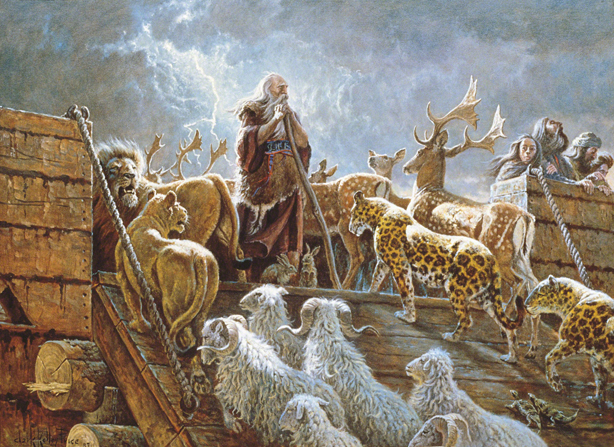When we think about the
calamity of the flood, we associate it with Noah’s ark. More than the events
that precipitated the event, pun intended, it Is Noah and his family that we
think about. The Zohar elaborates on
this feeling by stating that we call the flood Noah’s flood. Why? Because when the decree came from G-d
that the world would be destroyed there is no protestation on Noah’s end. And
for good reason. He spent 120 years
exhorting his fellow human beings to clean up their act and instead they mocked
him. It is understandable that he would
give up on them. Nonetheless, the Zohar finds fault in Noah’s attitude to the
destruction of his fellow human beings via his lack of protestation.
Contrast this behavior with Abraham. When the angel notified Abraham about the
intention to destroy Sodom, Abraham immediately sets into action in
protestation. How could it be that G-d
would destroy a city when there are righteous people in it? This is not the way
divine justice should work. This level of concern is a fantastic level. But, the Zohar points out that even this is
not enough.
What lacks in Avraham is that he is not concerned for
the evil people of Sodom. He is concerned only for the righteous among
them. He is concerned also for how this
would make G-d look. That is not big enough.
The ideal, according to the Zohar, is to be like Moses. When the Jewish people sank during the
episode of the golden calf, Moses didn’t ask G-d to save only those who were
not involved in the debacle. He asked
G-d to save everyone, righteous and evil alike.
This is the ideal we are looking for, to care for every human being,
even those not currently in line with our way of thinking that they should develop
to a more ethical path. And this isn’t considered
going above and beyond for if one doesn’t do it, it could well be that the
punishment will be attached to their name.

